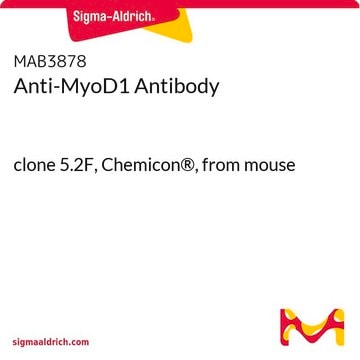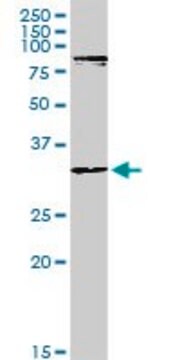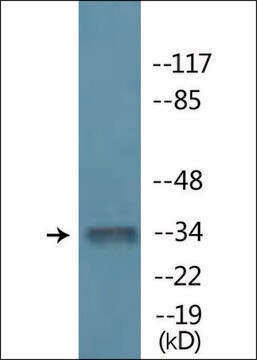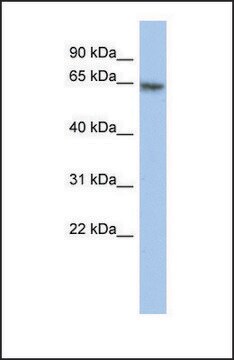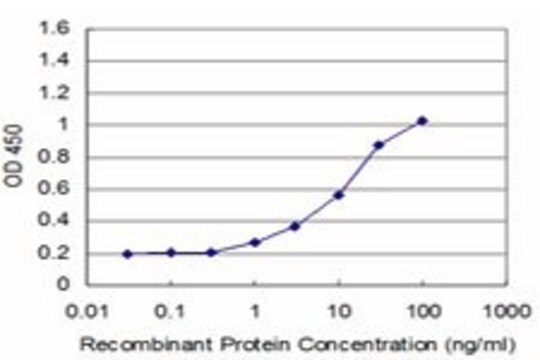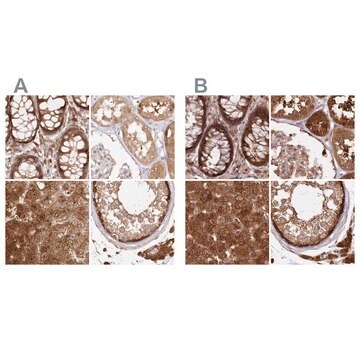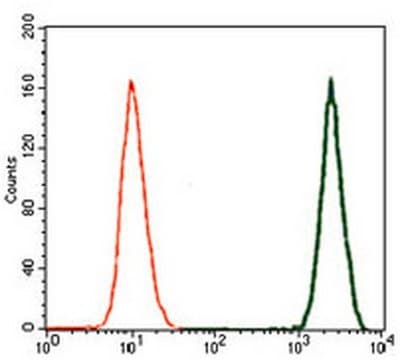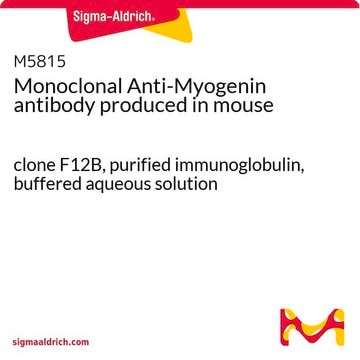MABE132
Anti-MyoD Antibody, clone 5F11
clone 5F11, from rat
Sinônimo(s):
Myoblast determination protein 1
About This Item
Produtos recomendados
fonte biológica
rat
Nível de qualidade
forma do anticorpo
purified immunoglobulin
tipo de produto de anticorpo
primary antibodies
clone
5F11, monoclonal
reatividade de espécies
mouse
técnica(s)
immunocytochemistry: suitable
western blot: suitable
Isotipo
IgG2aκ
nº de adesão NCBI
nº de adesão UniProt
Condições de expedição
wet ice
modificação pós-traducional do alvo
unmodified
Informações sobre genes
mouse ... Myod1(17927)
Descrição geral
Imunogênio
Aplicação
Western Blot Analysis: A representative lot detected MyoD in C2C12 cells.
Signaling
Developmental Signaling
Qualidade
Western Blot Analysis: 0.5 µg/mL of this antibody detected MyoD in 10 µg of C2C12 cell lysate.
Descrição-alvo
Ligação
forma física
Armazenamento e estabilidade
Nota de análise
C2C12 cell lysate
Outras notas
Exoneração de responsabilidade
Not finding the right product?
Try our Ferramenta de seleção de produtos.
Código de classe de armazenamento
12 - Non Combustible Liquids
Classe de risco de água (WGK)
WGK 1
Ponto de fulgor (°F)
Not applicable
Ponto de fulgor (°C)
Not applicable
Certificados de análise (COA)
Busque Certificados de análise (COA) digitando o Número do Lote do produto. Os números de lote e remessa podem ser encontrados no rótulo de um produto após a palavra “Lot” ou “Batch”.
Já possui este produto?
Encontre a documentação dos produtos que você adquiriu recentemente na biblioteca de documentos.
Nossa equipe de cientistas tem experiência em todas as áreas de pesquisa, incluindo Life Sciences, ciência de materiais, síntese química, cromatografia, química analítica e muitas outras.
Entre em contato com a assistência técnica